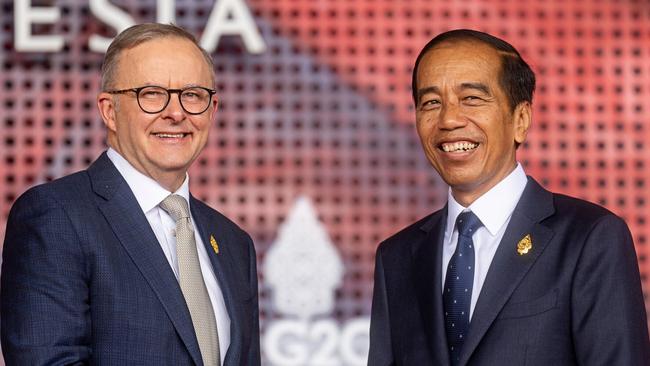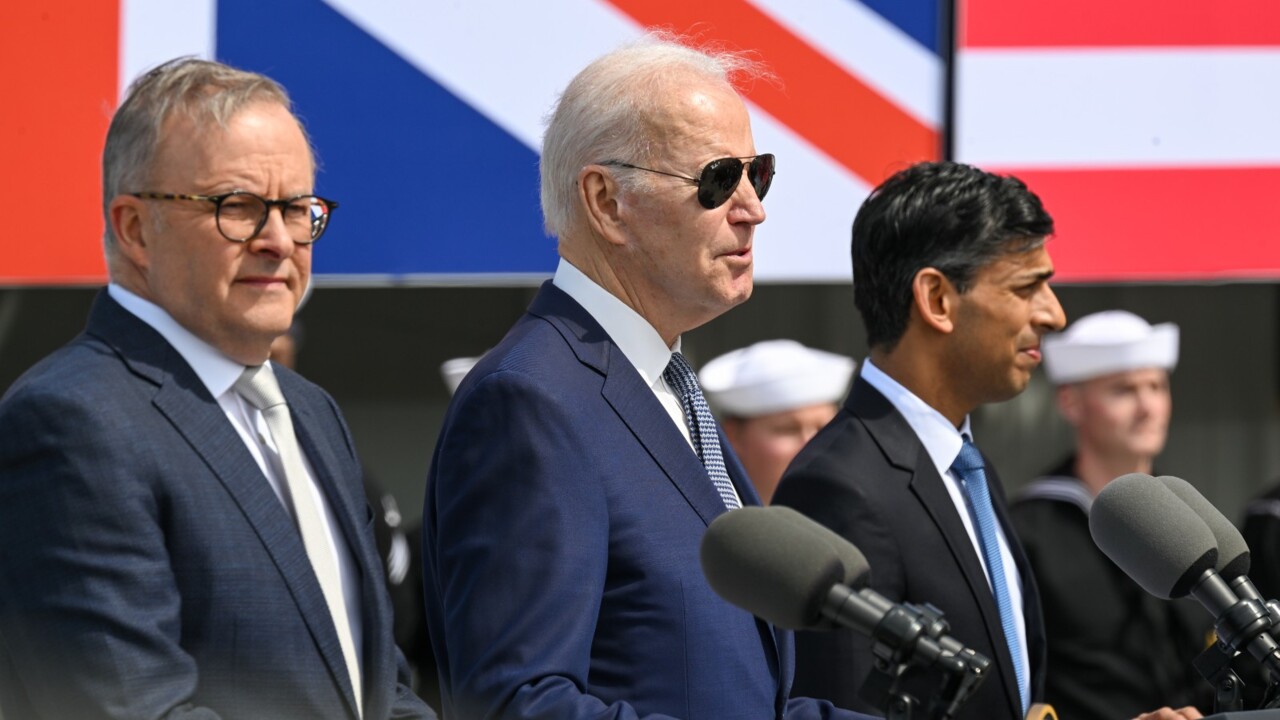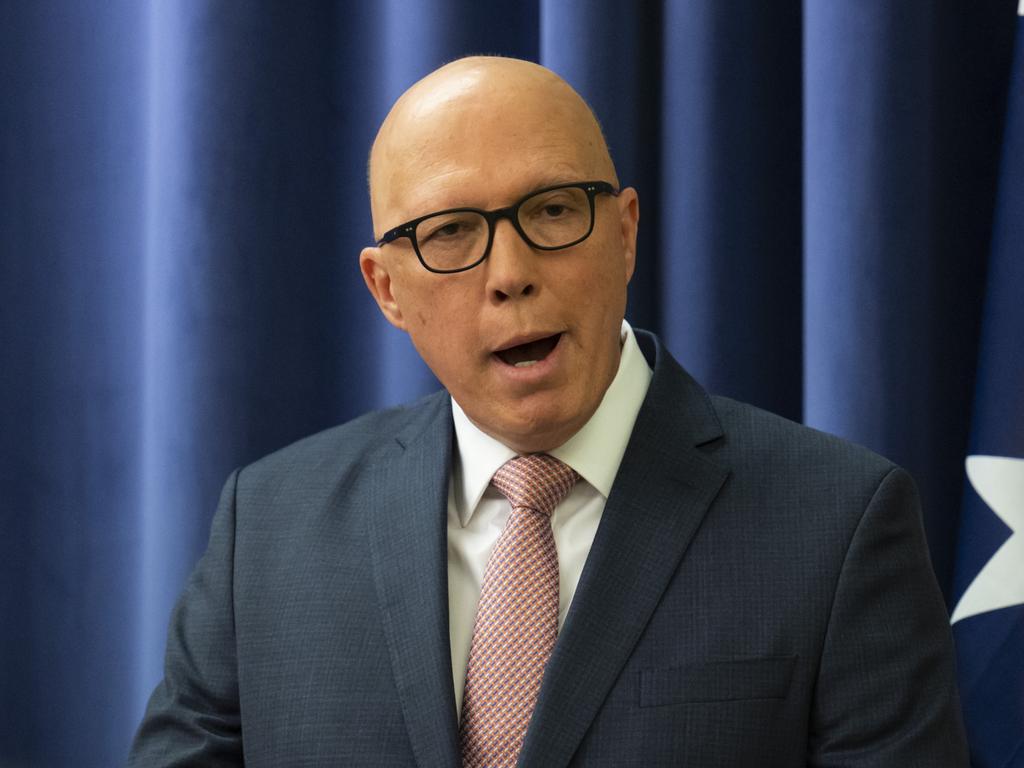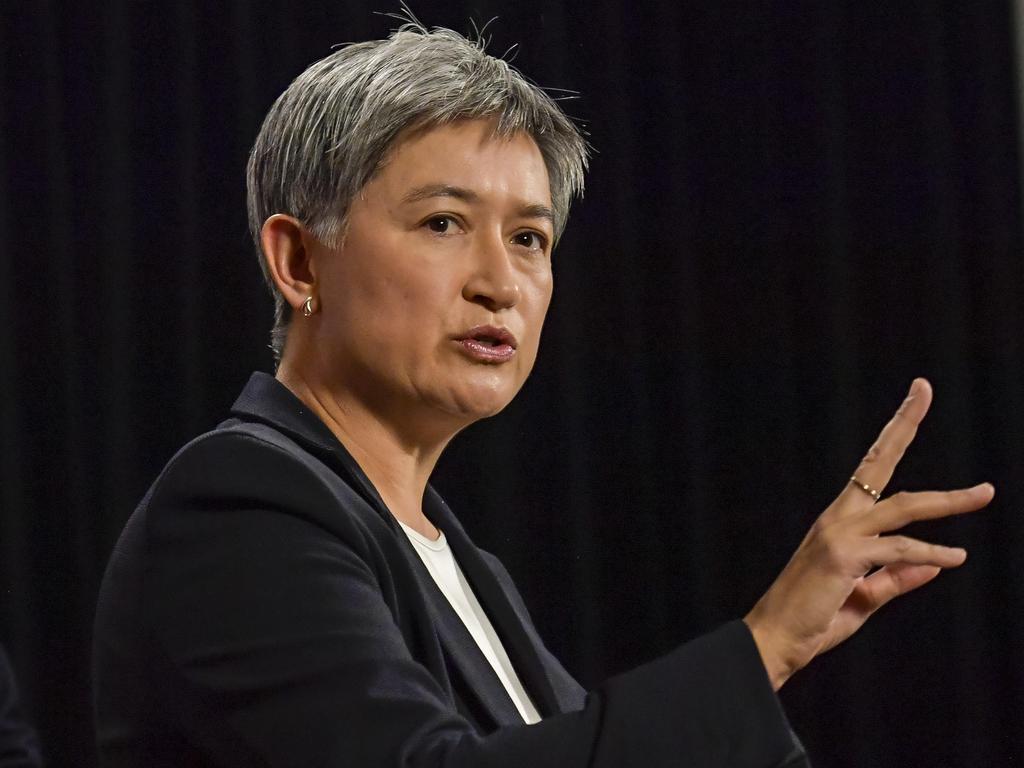AUKUS alliance: Your submarines may be unwelcome in our waters, says Malaysia
Malaysia has again come out swinging against Australia’s nuclear-powered submarine plans in a statement that closely mirrors China’s longstanding claims the AUKUS pact could trigger a regional arms race.

Malaysia has again come out swinging against Australia’s nuclear-powered submarine plans in a statement that closely mirrors China’s longstanding claims the AUKUS pact could trigger a regional arms race and hints the fleet may not be welcome in Malaysian waters.
The ambiguous statement came hours after Indonesia appeared to soften its language on the technology deal that will allow Australia to acquire nuclear submarines, urging AUKUS partners to help maintain regional peace and stability and uphold their responsibilities under the nuclear non-proliferation agreement after details of the trilateral plan to help Australia acquire a nuclear-powered submarine fleet were released in the US.
Jakarta’s more accommodating position follows briefings from senior Australian government officials in recent days, including a phone call from Anthony Albanese to President Joko Widodo.
But Malaysia has clearly not been assuaged by similar reassurances, despite noting in its statement that all three AUKUS nations are close partners and two of the three are parties to the Five Power Defence Arrangements.
It reiterated that all parties must comply with “our national regime in relation to the operation of nuclear-powered submarines in our waters, including the UN Convention on the Law of the Sea, Southeast Asia Nuclear Weapons Free Zone and ASEAN declaration on the Zone of Peace, Freedom and Neutrality”, without further explaining what that would mean.
“Malaysia acknowledges the needs of countries in terms of enhancing defence capabilities taking into account respective requirements and concerns. Nevertheless, Malaysia’s position on AUKUS remains the same,” the foreign ministry said.
It also urged all countries to refrain from “all provocation that could potentially trigger an arms race or affect peace and security in the region”.
Euan Graham, a senior fellow for Asia-Pacific at Singapore’s International Institute for Strategic Studies, said the statement exposed Malaysia’s double standards given China operates its own nuclear submarines in regional waters and “Malaysia doesn’t challenge or protest that”.

“There is nothing in UNCLOS or the Southeast Asia Nuclear Weapons Free Zone that outlaws the passage of nuclear-powered subs,” Dr Graham said.
“Australia has already assured that it can be consistent with its nuclear-weapons-free-zone commitments.”
Australian navy chief Mark Hammond is tipped to continue those assurances in Singapore this week and Jakarta on Monday, where he will meet his Indonesian counterpart, Admiral Muhammad Ali.
He is almost certain now to visit Malaysia as well.
Indonesia’s foreign ministry said in its own statement on Tuesday that it had “been closely following the security partnership of AUKUS, particularly the announcement on the pathway to achieve AUKUS critical capability”.
“Maintaining peace and stability in the region is the responsibility of all countries. It is critical for all countries to be a part of this effort.”
Elsewhere in the region, the announcement caused barely a ripple, reflecting Australia’s hard work in recent months to reassure its neighbours that the subs will carry no nuclear weapons.
Indonesia and Malaysia have been the most vocal critics of AUKUS, within the Association of Southeast Asian Nations. Both have previously raised fears it could trigger an arms race in the region.
Indonesia went so far as to raise its concerns at a Review Conference of the Nuclear Non-Proliferation Treaty last year, saying any deal involving the transfer of nuclear material and technology for military purposes from nuclear-weapon states to non-nuclear-weapon states increased the risk of proliferation.
Abdul Kadir Jailani, one of the Indonesian foreign ministry’s most senior bureaucrats and an adviser to minister Retno Marsudi on AUKUS, also warned the agreement set a precedent that could be exploited by less reliable states in the pursuit of nuclear technology.
Last week, Mr Jailani welcomed a briefing from Australia’s ambassador for arms control and counter-proliferation Ian Biggs, pointedly describing it on Twitter as an “important exercise to demonstrate Australia’s commitment to transparency towards building confidence in the region”.
On Tuesday, he told The Australian: “Indonesia expects Australia to remain consistent in fulfilling its obligations under the NPT and IAEA (International Atomic Energy Agency) safeguards, as well as to develop with the IAEA verification mechanism that is effective, transparent and non-discriminatory.”
A spokesman for Indonesian Defence Minister Prabowo Subianto, while calling for “mutual restraint”, said: “We understand the national interests of each country and hope each country also respects the national interests of other countries.”







To join the conversation, please log in. Don't have an account? Register
Join the conversation, you are commenting as Logout